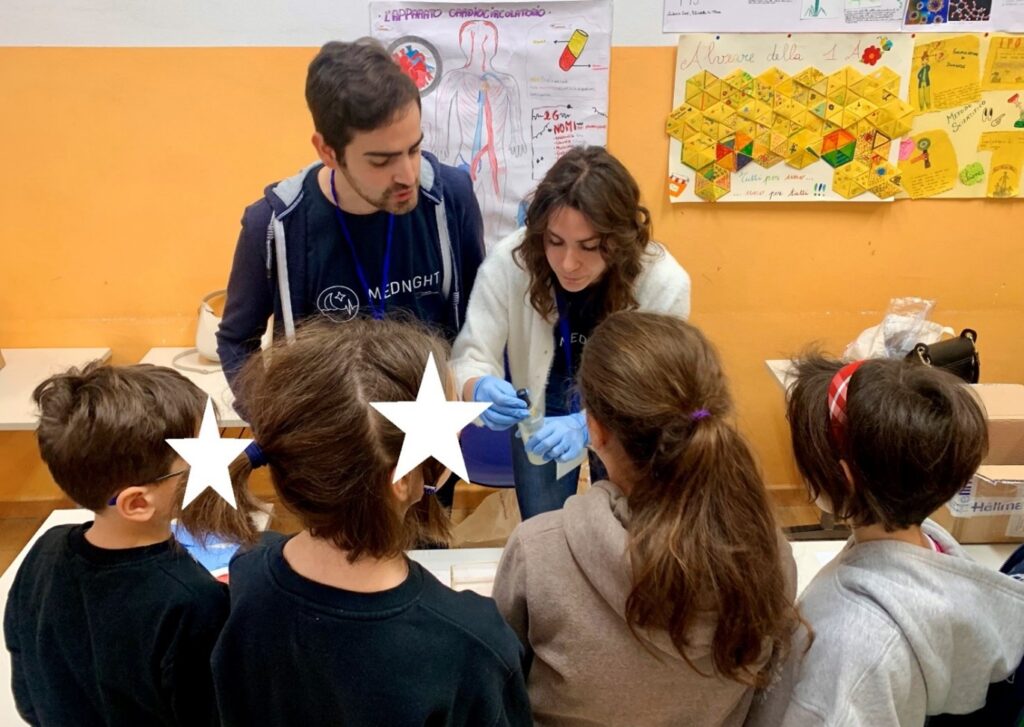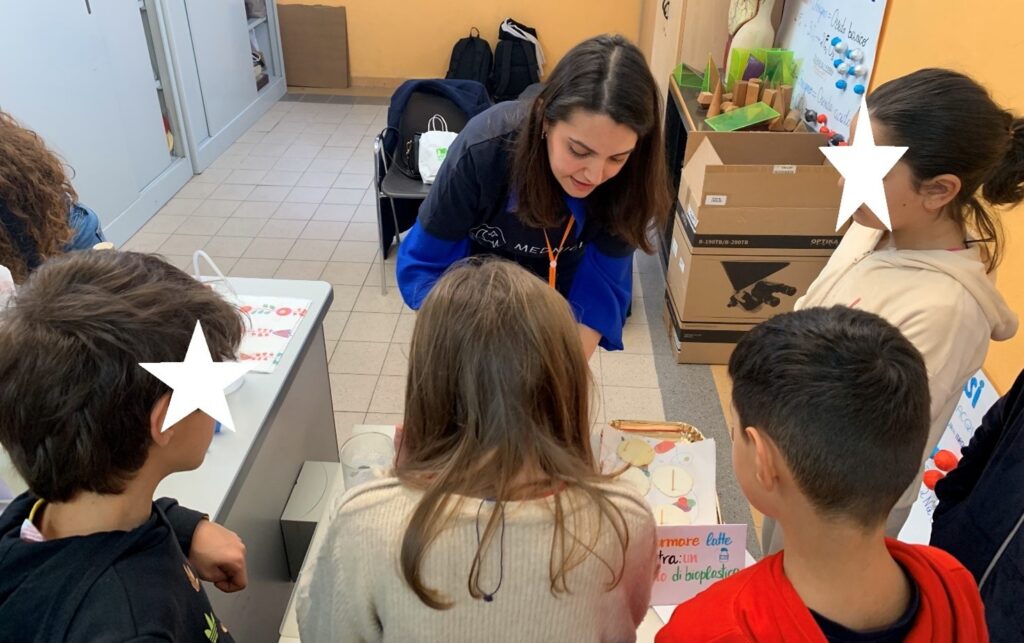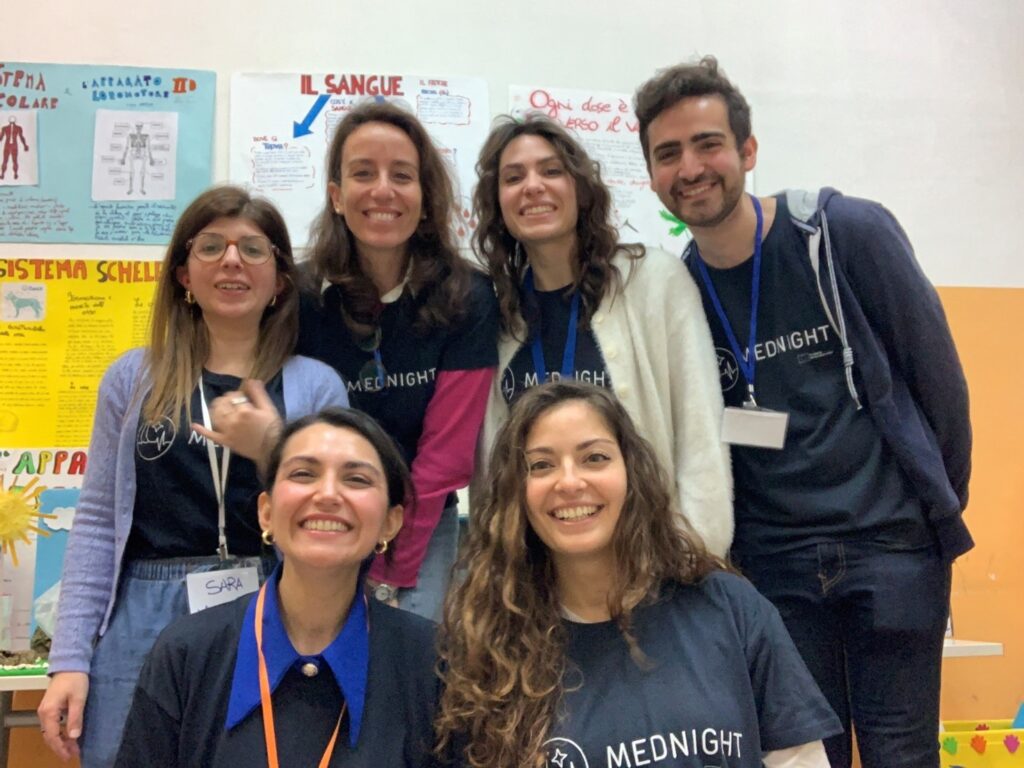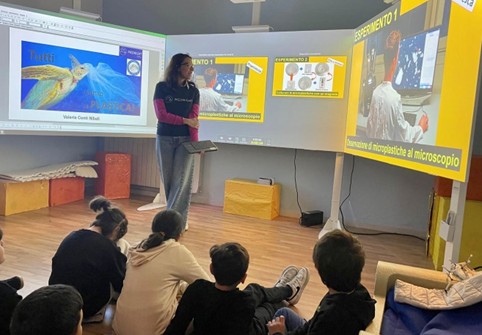On 26th March 2025 Rosaria Verduci, Mariangela Ruggeri, Elisa Bonaccorso, Andrea Ciccolo, Francesca Fabrizi and Valeria Conti Nibali joined the primary school Pascoli Crispi to discuss with pupils about “Microplastic pollution and the search for solutions: a physics lab”.
The course began with an interactive seminar, where students had the opportunity to explore the severity of the phenomenon and the importance of finding sustainable solutions. Subsequently, the project took the form of physics experiments: through observation under an optical microscope, students examined microplastics taken from various environmental samples and learn innovative techniques to remove them from water using ferrofluids.
Number of participating pupils: 100





